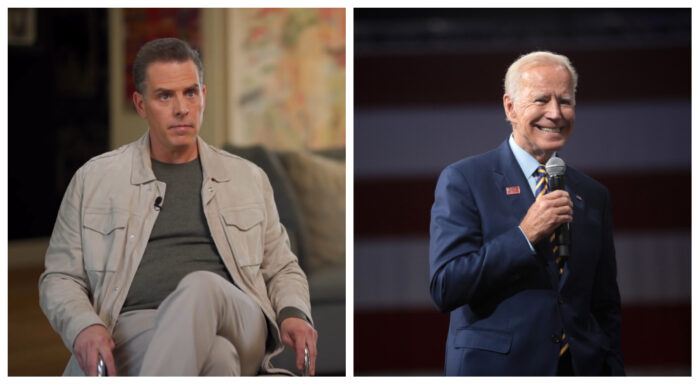With his father no longer in the race for president and no support to rely on, Hunter Biden is starting to see the mainstream media turn against him. On Tuesday, the New York Times published a startling report revealing that the embattled first son sought assistance from a prominent Biden ambassador to secure aid for Burisma, the Ukrainian energy company where he held a boardroom position. The company’s executives have openly claimed that Hunter’s role was solely due to his family connections.
The report underscores a significant shift in major news outlets’ willingness to scrutinize President Joe Biden’s son, who had likely counted on another four-year term to mitigate the growing criminal charges against him. According to the Times, the Biden administration withheld records about Hunter’s 2016 lobbying efforts with the U.S. ambassador to Italy until after the president concluded his reelection campaign.
At that time, Hunter was heavily involved in assisting Burisma in defending against a corruption investigation by a Ukrainian prosecutor. The recently disclosed documents provide insight into embassy officials who were uncomfortable with Hunter’s requests and advised him against guaranteeing that the administration could assist in facilitating a geothermal energy deal between Burisma and Italy.
“I want to be careful about promising too much,” wrote a Commerce Department (DOC) official in response to Hunter’s request for a meeting. “This is a Ukrainian company and, purely to protect ourselves, U.S.G. should not be actively advocating with the government of Italy without the company going through the D.O.C. Advocacy Center.”
Despite the revelation, the Times quickly suggested that the delay in releasing records was due to the State Department’s “notoriously slow” response to public records requests, and not a deliberate attempt to align with Biden’s decision to withdraw from the race. Early in the report, the paper allowed Hunter’s attorney, Abbe Lowell, to downplay the significance of Hunter’s 2016 outreach efforts.
“No meeting occurred, no project materialized, no request for anything in the U.S. was ever sought and only an introduction in Italy was requested,” Lowell said in a statement, calling Hunter’s outreach part of a “proper request” to “ask various people” about connecting Burisma with Italian energy officials.
But House Oversight Committee Chairman James Comer (R-Ky.), who has spearheaded a congressional inquiry into the Biden family’s business dealings, reacted to the news which even he had not uncovered as part of his investigation. “This is, I think, the biggest political corruption scandal in our history’s lifetime,” he said last week on Newsmax.
For months, the State Department resisted public records requests from the Times and other outlets for unredacted documents related to files found on Hunter Biden’s laptop. The government eventually released thousands of pages, none pertaining to Hunter’s business dealings, before closing the request. The Times then sued, leading to the current disclosure. In the newly revealed emails, Hunter’s business associate Eric Schwerin can be seen requesting a seemingly innocuous meeting between U.S. Ambassador John R. Phillips and Enrico Rossi, the head of Tuscany’s regional government.
“Burisma is hoping that some of its executives can get a meeting with the president to discuss their geothermal business in Tuscany,” Schwerin wrote to the Commerce Department contact. “The Ambassador already replied to one letter from Mr. Biden,” the Commerce Department official wrote in an email to other U.S. government officials. “He may be shopping for more support than he got here,” the official added. In an interview, the former ambassador said he did not recall any outreach by Hunter.



